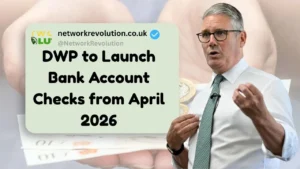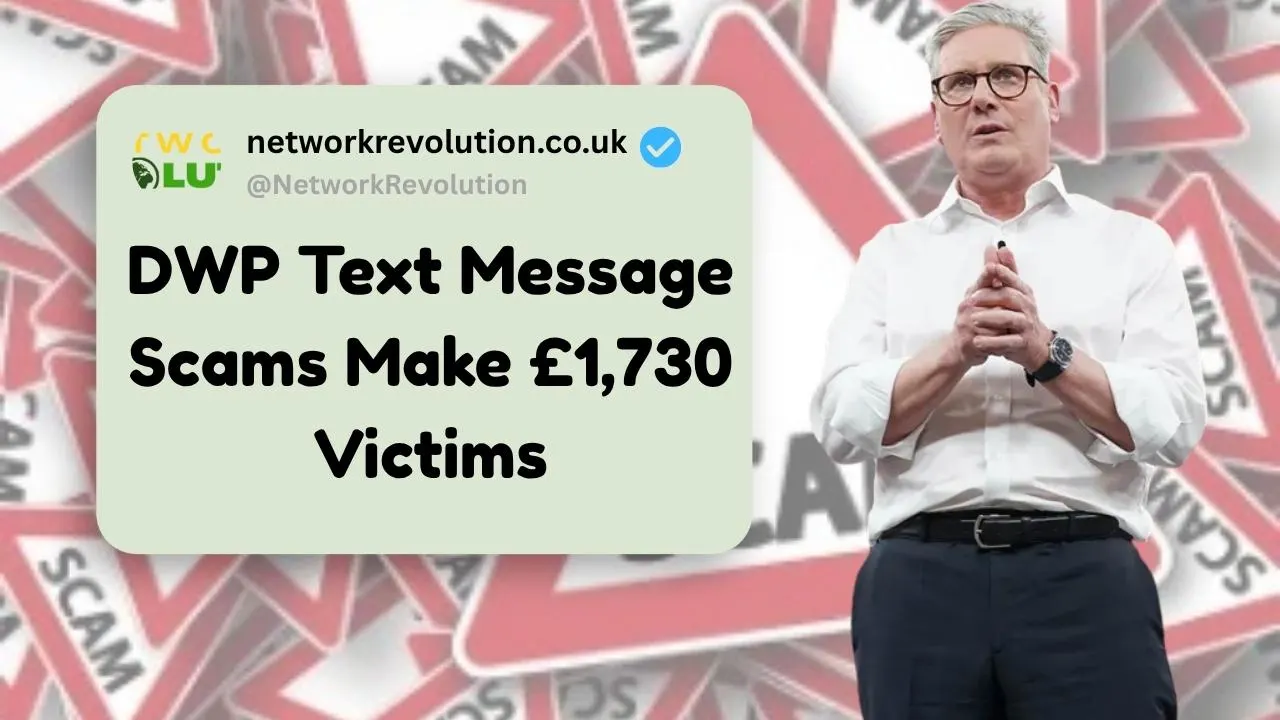Fraudulent text messages impersonating the Department for Work and Pensions (DWP) have become an alarming issue across the UK. According to National Trading Standards, over 6.6 million adults fell victim to online scams in 2024, with government impersonation schemes ranking among the most common threats. These scams have left victims, especially vulnerable groups such as elderly and disabled individuals, with an average loss of £1,730 each. The scams are becoming more sophisticated, and authorities urge everyone to remain vigilant.

The Rise of DWP-Related Scams
In recent months, DWP impersonation scams have targeted millions of claimants, often using text messages to trick individuals into sharing personal information or paying for non-existent services. On 5 June 2025, thousands of recipients were duped by a fake message claiming they missed the deadline to apply for cost-of-living payments. Despite the scheme having closed in 2024, the text created a false sense of urgency, directing people to a fraudulent website designed to harvest sensitive details, such as bank information and personal identifiers.
“Scammers are becoming increasingly clever in their tactics,” said John Smith, a fraud prevention officer at National Trading Standards. “What may seem like an official message could lead to devastating financial consequences if you’re not cautious.”
Also Read DWP Beneficiaries to Receive a Christmas Gift — The Most-Awaited Yearly Payout is Back
DWP Beneficiaries to Receive a Christmas Gift — The Most-Awaited Yearly Payout is Back
How DWP Scams Work?
These scams usually involve messages that:

- Impersonate the DWP, claiming recipients need to take urgent action regarding their benefits or payments.
- Include fake links that appear legitimate but lead to fraudulent websites.
- Ask for sensitive information, such as bank details, National Insurance numbers, or PIN codes.
- Encourage immediate payment for cost of living payments, benefit increases, or fines for missed appointments.
Real-Life Example of a Scam
One victim, Emma Turner, from Leeds, received a message claiming she had missed an application deadline for a £1,500 cost-of-living payment. The text included a link to a fake DWP website, where Emma was asked to enter her bank account number and sort code.

By the time Emma realized it was a scam, £1,730 had been taken from her bank account.
“I felt completely violated,” Emma shared. “They made it look so real, and I honestly thought I was just updating my details for the government. Now I feel so helpless and vulnerable.”
Also Read DWP to Launch Bank Account Checks from April 2026
DWP to Launch Bank Account Checks from April 2026
Who Is Most at Risk?
- Elderly individuals – Particularly those who have relied on DWP services for years.
- Low-income families – Those who rely on Universal Credit or Pension Credit may be more likely to fall for scams promising financial support.
- Disabled claimants – Many of these individuals receive regular benefits and may be targeted more often due to potential vulnerabilities.
According to National Trading Standards, 73% of UK adults have reported receiving scam texts impersonating the government, and around 35% of those targeted lost money.
What to Look Out For?
To avoid falling victim to DWP text message scams, keep the following tips in mind:
- Verify the Source: Official DWP messages will never ask you to provide sensitive information via text. If you receive an unexpected message, do not click on any links. Instead, visit the official DWP website or contact them directly through verified phone numbers.
- Look for Red Flags: Be wary of messages that:
- Ask for personal information like your bank account number, PIN, or National Insurance number.
- Claim you need to act immediately or face penalties.
- Include spelling mistakes or odd phrasing.
- Use Official Websites: Always navigate to gov.uk to check your benefits status or to get official updates.
- Install Anti-Scam Software: Make sure your mobile device has anti-scam software installed to detect fraudulent links or malware.
- Report Scams: If you suspect you’ve received a scam text, report it immediately to Action Fraud and forward the message to 7726 (the national spam text number).
How to Protect Yourself?
Experts advise claimants to exercise extra caution when dealing with unsolicited messages. Maya Patel, Head of Cybersecurity at Digital Safety Network, explained:
“A scam text may appear legitimate, especially when it looks like it’s from a trusted government service like the DWP. Protect yourself by taking a moment to verify the message, particularly if it’s asking for sensitive data.”
Other ways to protect yourself include:
- Double-checking the sender’s number– Official DWP messages will often come from numbers like “DWP” or “gov.uk”.
- Avoiding “no win, no fee” – offers that seem too good to be true.
- Asking a trusted family member or friend for help if you’re uncertain about any communications.
The Financial Cost of Scams
Scammers are exploiting the trust that millions of people place in the DWP. Figures show that the average victim loses £1,730. However, the true financial damage goes beyond the immediate loss. Many victims report feeling emotionally and psychologically impacted, as well as dealing with the fallout of damaged credit scores or identity theft.
“In addition to the immediate financial loss, victims can also experience long-term consequences,” said Martin Lewis, founder of MoneySavingExpert. “The financial cost is only part of the damage done by these scams.”
DWP’s Response to the Issue
The Department for Work and Pensions has stressed that:
- They will never ask for personal details like banking information via text messages.
- Claimants should always verify any unexpected communication and avoid clicking on links from suspicious messages.
A DWP spokesperson stated:
“We take fraud very seriously. If you believe you have been targeted by a scam, please report it immediately and do not provide any personal details.”
FAQs
1. What should I do if I received a suspicious text from the DWP?
Do not click any links or provide any details. Report the text to Action Fraud and forward the message to 7726.
2. How can I verify a DWP message?
Go to the official DWP website (gov.uk) or call their helpline to confirm any information you receive.
3. Can scammers steal my money through text messages?
Yes, scammers can trick you into providing personal details that allow them to access your bank accounts or commit identity theft.
4. Is there any way to protect myself from these scams?
Yes, use anti-scam software on your phone, avoid unsolicited messages, and report any suspicious activity.
5. Will the DWP reimburse me if I fall victim to a scam?
The DWP is not liable for losses caused by scams. Always verify communications before taking action.

